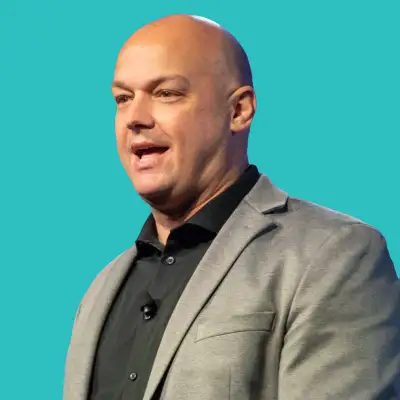Trust Builds Teams. Coaching Builds Careers with Sean Harvey
In this episode, Sean Harvey, CRO at RocketRez, shares a practical framework for building coaching cultures that actually stick. He explains why trust, not tactics, is the starting point for real performance, and how coaching must move beyond pipeline reviews and into intentional skill development. From his early Oracle training to leading teams through hypergrowth and private equity scale-ups, Sean outlines the lessons that shaped his belief in coaching as both a performance lever and a retention strategy.
If you’re still coaching “on the fly” or stuck playing super-rep, this conversation will challenge your assumptions. Sean covers the link between psychological safety and rep engagement, how vulnerability-based trust unlocks real development, and why sustainable growth demands coaching at every level from C-suite to the frontlines. You’ll walk away with a clearer understanding of what coaching is, what it’s not, and how to build a team that stays, grows, and performs.
Key Takeaways
1. Coaching must start at the top to stick long-term
If the C-suite doesn’t model and prioritize coaching, it gets deprioritized the moment short-term pressure hits.
2. Trust is the foundation of any real coaching culture
Reps won't grow unless they believe their manager has their long-term development, not just this quarter’s numbers, in mind.
3. Vulnerability-based trust drives engagement and learning.
Creating psychologically safe spaces where reps can fail and learn openly is what unlocks real skill development.
4. Great managers coach people, not just deals.
Coaching isn’t about saving deals; it’s about building reps who can consistently win without constant intervention.
5. Consistency matters more than intensity.
A lightweight but regular coaching rhythm beats sporadic “inspiration bursts” that vanish under pressure.
6. You can’t scale if you’re only hiring more reps.
Scalability means increasing productivity per rep, which only happens when you build coaching into the operating system.
7. Coaching drives retention, especially in high-talent environments
Reps stay where they feel invested in, especially when they’re being challenged to grow with structure and support.
8. Managers are overwhelmed and under-equipped to coach
Most FLMs were promoted as top reps but were never taught how to develop others; tools and frameworks help close this gap.
9. The best leaders have coaching “trees”
Just like in sports, great coaches produce other great coaches; mentoring others to lead is a force multiplier.
10. Success is compounding when coaching becomes culture
When coaching becomes normalized, teams get better, faster, improving not just results, but predictability.
If you’re still coaching “on the fly” or stuck playing super-rep, this conversation will challenge your assumptions. Sean covers the link between psychological safety and rep engagement, how vulnerability-based trust unlocks real development, and why sustainable growth demands coaching at every level from C-suite to the frontlines. You’ll walk away with a clearer understanding of what coaching is, what it’s not, and how to build a team that stays, grows, and performs.
Key Takeaways
1. Coaching must start at the top to stick long-term
If the C-suite doesn’t model and prioritize coaching, it gets deprioritized the moment short-term pressure hits.
2. Trust is the foundation of any real coaching culture
Reps won't grow unless they believe their manager has their long-term development, not just this quarter’s numbers, in mind.
3. Vulnerability-based trust drives engagement and learning.
Creating psychologically safe spaces where reps can fail and learn openly is what unlocks real skill development.
4. Great managers coach people, not just deals.
Coaching isn’t about saving deals; it’s about building reps who can consistently win without constant intervention.
5. Consistency matters more than intensity.
A lightweight but regular coaching rhythm beats sporadic “inspiration bursts” that vanish under pressure.
6. You can’t scale if you’re only hiring more reps.
Scalability means increasing productivity per rep, which only happens when you build coaching into the operating system.
7. Coaching drives retention, especially in high-talent environments
Reps stay where they feel invested in, especially when they’re being challenged to grow with structure and support.
8. Managers are overwhelmed and under-equipped to coach
Most FLMs were promoted as top reps but were never taught how to develop others; tools and frameworks help close this gap.
9. The best leaders have coaching “trees”
Just like in sports, great coaches produce other great coaches; mentoring others to lead is a force multiplier.
10. Success is compounding when coaching becomes culture
When coaching becomes normalized, teams get better, faster, improving not just results, but predictability.



